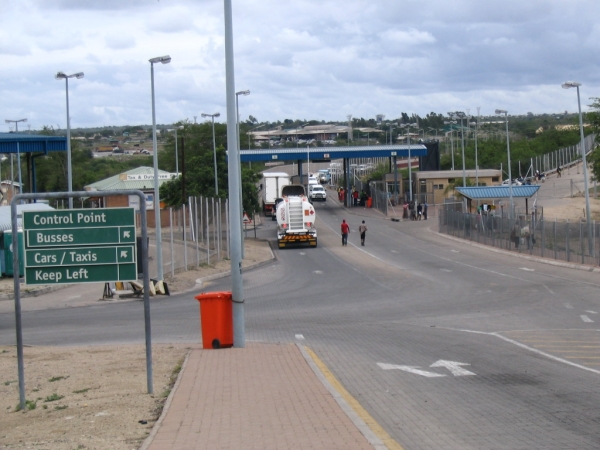How bus drivers and immigration officials fleece Zimbabweans in the December holidays

Like many Zimbabweans living and working in South Africa, I travelled from Cape Town to Harare in the December holidays. Luckily all my documents are in order, but for Zimbabweans who have overstayed their allotted time or who do not have the correct documents, the journey is a corruption nightmare.
Make no mistake, the journey is no joy even if your papers are in order. The toilets on the buses are often blocked and smell disgusting. And drivers are reluctant to stop to let desperate passengers relieve themselves. Also, the bus fares in December are inflated.
Bus drivers fleece travellers who do not have correct travel documents.
I used the Eagle Liner bus company and made the border crossing at Beit Bridge on 21 December.
After a passenger said the customary prayer in Johannesburg at the beginning of the trip, one of the two drivers said: “Ladies and gentlemen: All those who do not have proper travel documents come forward one by one. We will solve your problems and we assure you of no arrest by police till you have reached your destination.”
About 20 of the 69 passengers went forward to negotiate with the driver. They paid different bribe amounts ranging from R200 to R1000.
All was well till we arrived at the Messina Weighbridge inspection point.
The driver tried to ignore the weighbridge route, at which all buses have to stop, but the police flagged him down.
At the inspection point everyone was asked to disembark and our passports were checked.
Passengers who had already paid a bribe to the drivers expected them to stand up for them.
But one driver shouted as he got off the bus, “Please, those who do not have passports take out R20 so that we give it to these officials.”
We queued for the weighbridge officials. Those who did not have valid travel documents were screened out. The driver collected R20 from each of these people. The weighbridge official and the driver went to the back of the bus and all I noticed was that one of the officials manning the inspection point pocketed something. Everyone got back in the bus.
“This is unfair. Why are we again paying? Yet we had already given him some money covering all this,” said a passenger next to me. He complained that the driver had already ripped him off in an exchange rate deal.
I looked at his passport. There was no record of him having entered South Africa. Fed up, he said that next time his wife would make the trip, not him.
When we got to the South African side of the Beitbridge border post, people who had problems with their passports gave them to the driver, whose job it would be to organise official stamps.
Then two men came running to meet all of us as we got off the bus. “Please, we are here to assist those whose passports have overstayed. We negotiate for a certain amount and your passport will be stamped,” said one of them.
No one paid attention.
Those of us whose passports were in order went into the immigration office. Those whose papers were not in order hung around at the bus.
The driver came with us. I was interested to see whether the driver would speak to the immigration officials about the passports he had collected for stamping. To my surprise he produced his own passport for stamping, but no one else’s.
We did not spend much time at the South African side.
“Was my passport sorted out?” asked the passenger who sat next to me.
Looking very concerned the driver replied, “The officials asked me to bring the passports some time next week so please can I have your mobile number so that I call you when the deal is done.”
Furious, the owner of the passport demanded back both his passport and money, which the driver handed back to him. But most other people were afraid to approach the driver.
On the Zimbabwean side if you do not have the correct travel documents you have to pay R200 for a gate pass. This is not a bribe; it’s an official charge and it is processed smoothly, allowing you to enter Zimbabwe.
However, some of the passengers without the right documents weren’t aware of this system and the drivers tried to take advantage. They approached each of the 20 passengers requesting more money. It was late at night, 11pm, and the drivers indicated that unless they were given further bribes the bus would not be able to leave the border before 6am.
“Please can you add more on what you have paid because we would like to leave the border earlier. All the money you have paid is used up,” said one driver.
Some of the victims were not patient anymore.
“Please give us back what we paid you earlier so that we can pay directly to the police. We can no longer pay any money,” said one of the victims. But the drivers refused to refund them, and the bus didn’t move.
We finally departed the border, into Zimbabwe, at about 6am.
Support independent journalism
Donate using Payfast

Don't miss out on the latest news
We respect your privacy, and promise we won't spam you.
Next: Fire in Langa destroys dozens of homes
Previous: Court case exposes violence in Wild Coast mining dispute
© 2016 GroundUp. 
This article is licensed under a Creative Commons Attribution-NoDerivatives 4.0 International License.
